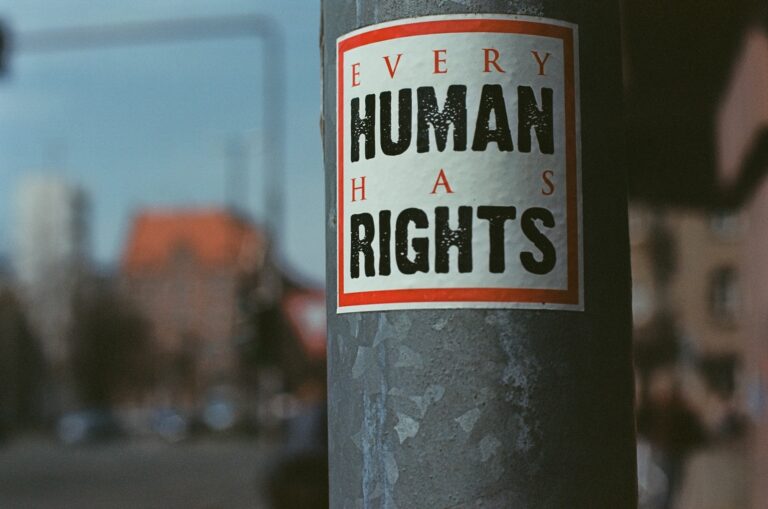10th December is known as International Human Rights Day and celebrates the drafting of the Universal Declaration of Human Rights. In commemoration, we bring attention to our freedoms and shine a light on how we can advocate for ourselves when these are disrupted.
If you’re an event planner looking for ideas on how to celebrate Human Rights Day, we’ve got you covered. Keep reading for inspiration.
What event does Human Rights Day commemorate?
On 10th December 1948, the United Nations adopted the Universal Declaration of Human Rights (UDHR). This document ensures basic rights for every human being regardless of gender, race, ethnic origin, and other statuses. The drafting of the UDHR was a monumental occasion, and 10th December was deemed Human Rights Day. This holiday celebrates the dignity the UDHR grants us and raises awareness of how people’s rights are violated.
International Human Rights Day promotes equality, peace, justice, and the protection of human rights. It’s important to find ways to honour these values, so we’ve come up with 10 ideas for creating events for the day.
10 event ideas to celebrate International Human Rights Day
Many people may not know how to celebrate International Human Rights Day. As an event creator, you can provide people with ways to commemorate this special day. The following Human Rights Day celebration ideas are engaging, educational, and designed to spark inspiration for activism.
1. Organise powerful performances
Performances are an artistic way to convey the meaning of Human Rights Day. Invite local artists and influencers to perform pieces centred around pertinent themes. Performances can include speeches, poem readings, dance routines, or skits.
The Centre of Governance and Human Rights (CGHR) hosted an event to celebrate the milestone achievement of their podcast, ‘Declarations’, reaching seven seasons. Various human rights podcasters and practitioners were invited to present talks and discuss the opportunities and challenges surrounding this important conversation.
2. Host an online conference
An online conference allows attendees to listen to one speaker at a time, increasing audience engagement. Not only that, but an online event can reach a wider group of people – think international. The Human Rights Law Centre recently organised an online speaker showcase on the cost of living crisis and its effects on human rights globally.
To host a webinar for Human Rights Day, start by reaching out to candidates. Preferably these would be activists, community leaders, authors, or anyone else that can deliver addresses surrounding human rights. Allow attendees to interact with speakers by organising breakout rooms with Q&A sessions.
For more ways to make your online event one to remember, check out our guide for hosting a webinar.
3. Celebrate the community with an awards ceremony
Recognise human rights advocates in your community with an awards ceremony. This idea works well for charities and other organisations wanting to celebrate their members.
Additionally, an awards ceremony is an opportunity to educate people on human rights issues. Invite keynote speakers to give addresses, and for entertainment, bring up artists to perform thematically aligned work. Every year, the UN Association London and South East Region hosts an awards ceremony focused on educating the community about human rights and the association’s achievements over the past year.
Remember: No event is complete without food. Explore local restaurants and caterers that would be happy to provide the menu for an event celebrating human rights advocacy.
4. Encourage new connections with a networking event
Organise a networking event to connect human rights advocates. This will allow passionate attendees to swap ideas on initiatives and efforts.
Your event can be virtual or in-person. Virtual networking is a draw for many event-goers; this format provides easier access and allows participants to connect with those outside of their community.
If you opt for an in-person event, consider icebreakers, such as speed networking or scavenger hunts, to facilitate conversation.
5. Curate an art exhibition
Art and photography deliver messages in powerful and unique ways. Curating an exhibit gives attendees a fresh perspective on human rights issues and themes, such as gender inequality, human trafficking, and reproductive rights.
Human rights are relevant to everyone, so you’re bound to find artists with a story to tell. To find artists, visit your local art gallery or browse social media. The Centre for Applied Human Rights @ UoY set up the first public screening of a collaboration between Mexican feminist art collective Las Iluministas and UK-based Pink Collar Gallery. A series of short films showcased 10 pieces of public art from feminist artists designed to change the narrative on gender-based violence and femicide.
6. Educate attendees with a panel discussion
If you want to showcase diverse voices, consider organising a panel. A roundtable gives more than one insight into a topic and is an enriching and educational experience for attendees.
Amnesty International UK hosts an annual conference, which features a thought-provoking panel event with leading figures within the organisation and other activists from the UK and overseas.
Keeping your panel local helps attendees connect with their community, but you’re not limited to this approach. Invite international speakers to lend their voices. For instance, a virtual roundtable allows speakers worldwide to gather in one place and share their input.
7. Present a self-advocacy workshop
Human rights extend to all areas of life, including the workplace. Issues around gender, age, and racial inequality impact millions of employees. Many people aren’t equipped to advocate for themselves when these issues arise.
Offering a self-advocacy workshop will empower people to use their voices. Need inspiration? The Mind our Rights Education Programme (MORE-P) hosts a fortnightly training session offering examples of good practices in human rights sensitivity from around the world, and an educational seminar on national and international human rights laws.
Take a look at our how-to guide for creating an interactive workshop for ways to bring your event to life.
8. Human rights young activism summit
Inspire tomorrow’s leaders with an activism summit. First, start with a lineup of stimulating speakers. A group of experienced guests can lend their knowledge and ignite the spark in young people interested in human rights defence.
Anglia Ruskin University – Community Engagement arranges regular speaker events to focus students and young people on various topics, including human rights. A recent talk with lawyer Robert Tibbo centred on the importance of whistleblowers in democracies. You can also build on these events by adding games, discussions, and workshops.
9. Hold a Human Rights Day festival
Encourage people to come out and celebrate the freedoms the Declaration of Human Rights grants. Instead of a one-day affair, make this a weekend-long extravaganza.
Here’s an example of what a human rights festival could look like:
Friday: Panel discussions, theatre performances, children’s exhibits, musical performances
Saturday: Art showcase, poetry reading, trade show booths, musical performances
Sunday: Book fair, musical performances, activism workshops
For a large-scale festival like this, approach event sponsors. Incorporating sponsors will help cover costs, and partnerships can even help increase your reach.
10. Plan a kids’ activity day
A kid-friendly Human Rights Day event can be educational and fun. Host a read-aloud that features children’s books about human rights issues. After the reading, provide games and activities that test kids’ knowledge of the book’s topics. Consider inviting the author to do a Q&A and signing.
Get started with Eventbrite
When planning your own event, take inspiration from these Human Rights Day event ideas. Once you’ve figured out how you want to celebrate the day, make it a reality with Eventbrite and post your event listing.





